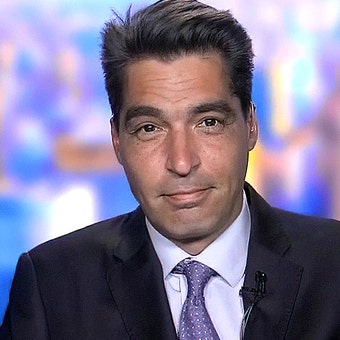Activists fight back against the Education Department's push for critical race theory curriculum
Fox News' Mike Emanuel reports on the CRT critics slamming the required studies as 'radical policies and programs'
The best thing I have ever read on the subject of critical race theory (CRT) in education was a 2013 article in Harvard Educational Review titled, "McIntosh as Synecdoche, How Teacher Education’s Focus on White Privilege Undermines Antiracism."
The authors were a group called the Midwest Critical Whiteness Collective. As is probably obvious from the name this was no conservative think tank pouncing on a boogeyman but rather a group of teachers actually involved in applying CRT in the classroom. This excerpt from their conclusion is telling:
"McIntosh’s conception of white privilege has been at the center of anti-racist thought and action in teacher education. We argue, however, that McIntosh’s ideas simplify white racial identity in dangerous ways. We also demonstrate that white privilege pedagogy demands confession, but that confession is a dead end."
The McIntosh in question is Peggy McIntosh, activist, anti-racism scholar and Senior Research Scientist of the Wellesley Centers for Women, whose 1989 essay "Unpacking the Invisible Knapsack" ushered in the concept of "privilege theory" which was borrowed, or dare we say appropriated from W.E.B. Dubois’ concept of the "psychological wage." It demands that White people, students in particular, confess their unearned advantages so as to dismantle them.
From the trenches of the current culture war, the Midwest Collective’s essay is insightful as it proves that criticism of CRT is not some flavor of the month conservative outrage but a long battle in academia.
Synecdoche is one of those words I mispronounced for most of my life (turns out it sounds like a certain upstate New York town) and in this case it is most apt. It means a word or term that comes to symbolize an entire concept or set of concepts. Privilege theory, which lies at the root of CRT has done exactly that in our educational system’s approach to antiracism.
Much like the way the term "Black Lives Matter" became confusing last year -- is it a general statement of support or a specific Marxist ideology – so too critical race theory has become mired in definitional battles. Conservatives claim it is a racist worldview, progressives claim conservatives criticize it without even knowing what it means.
Privilege theory is the keystone here. At the heart of critical race theory is the concept that White Americans have innumerable invisible advantages that maintain racial disparities in our culture.
VIRGINIA COUNTY OFFICIALS ACKNOWLEDGE CRITICAL RACE THEORY INFLUENCES, ALIGNS WITH THEIR WORK
Allow me to say right off the bat that there is nothing wrong with the idea of privilege theory on its own. It is right and just for all of us to think about the unearned advantages we have received in our lives, be they based on our race, our family wealth, or any host of things.
The problem emerges when this very specific idea comes to be applied to everything. From history to math, science and the arts, now every subject is in the crosshairs of critical race theory which demands that none of these subjects can be truly understood except through the lens of race, which is to say the lens of those who do or do not have privilege.
More from Opinion
- Dr. Nicole Saphier: Let's pause COVID vaccination for our kids -- here's my take as a physician and mother
- Gregg Jarrett: Rep. Adam Schiff's fury and outrage over seized phone records is a perverse irony
- RNC Chairwoman McDaniel: Biden's border crisis -- here's how GOP governors are stepping up to fix the mess
All of this gets to the crux of the confusion over CRT in the schools. It is vital to understand that it is less a subject to be taught than pedagogy, which is to say a way of teaching.
Conservatives typically do not object to students examining how racism intersected with our nation’s history and demographic distribution of resources, rather they object to racism becoming the whole story, or a synecdoche of America.
CLICK HERE TO GET THE OPINION NEWSLETTER
Of course we should study the year 1619, when slaves were first brought to these shores but insisting that this is the founding date and idea of America goes too far.
There is scarcely, if any, evidence to suggest that today’s students are being taught a whitewashed version of American history. Perhaps no nation on Earth spends as much time on an analyst’s couch reliving past sins as we do. But at the same time, exposing kids to ideas, even radical ideas about the role of race in our history is a good thing. So long as theories like privilege, systemic racism and white fragility are presented as one of myriad approaches we should let our kids sort it out.
What must be rejected is not that our kids learn about know of critical race theory, what we must reject is them being taught that it is truth rather an opinion.
What we have right now is a mess in which all parties seem to assume the worst about all others and simply talk past each other.
CLICK HERE TO GET THE FOX NEWS APP
The nation’s students and parents, who are increasingly demanding that their voices be heard in the debate over CRT, deserve better.
We can already have a rational discussion about CRT if we so choose but don’t hold your breath. For now it’s mostly adults scoring political points while our kids’ educations suffer.
Editor's note: David Marcus' new book is: "Charade: The Covid Lies That Crushed A Nation" (Bombadier Books, June 7, 2020).

